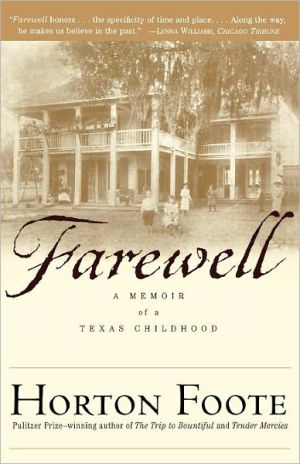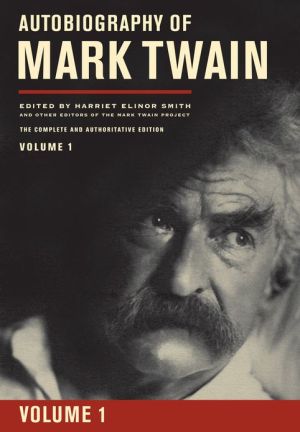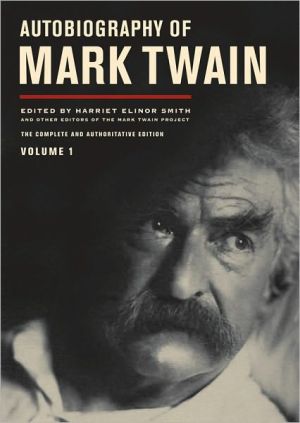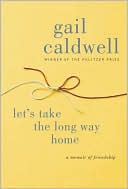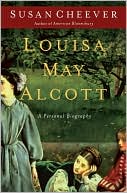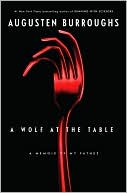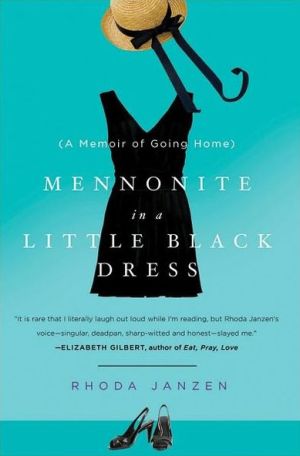Farewell: A Memoir of a Texas Childhood
For more than five decades, Horton Foote, "the Chekhov of the small town," has chronicled the changes in American life -- both intimate and universal. His adaptation of Harper Lee's To Kill a Mockingbird and his original screenplay Tender Mercies earned him Academy Awards. He received an Indie Award for Best Writer for The Trip to Bountiful and a Pulitzer Prize for The Young Man from Atlanta.\ In his plays and films, Foote has returned over and over again to Wharton, Texas, where he was born...
Search in google:
Foote returns to Wharton, Texas, where he was born and where he again lives -- in the house in which he grew up -- to tell the stories of the real people who have inspired his characters. Here is a celebration of community and a gorgeous testimony to the human spirit. New York Times Book Review - Andrew O'Hehir Foote draws no conclusions about himself or his origins at the end of this warm, spare chronicle, but it provides a key to the birth of his distinctive sensibility.
Chapter One\ I left my home in Wharton at sixteen, but no matter how poor I was, and I was often very poor, I always managed to return for a visit at least once a year, and whenever I met with friends or relatives on those visits we inevitably got around to: "Do you remember when," or "I wonder whatever happened to ..."\ I was the first grandchild born into the extended family that surrounded me in Wharton and Houston. On my father's side I had a grandmother, a stepgrandfather, an aunt, three great-aunts, a great-uncle, a great-great-uncle and first, second and third cousins in abundance. On my mother's side I had a grandfather, grandmother, two aunts, three uncles, three great-uncles, four great-aunts and many first, second and third cousins. Also, nearer the coast in the towns of East Columbia and Angleton were other great-aunts and cousins.\ I was fond of all of them, and particularly close to my mother's mother and father, her younger sisters and her brothers. The backyards of our houses joined and we were always, it seemed to me, visiting each other.\ Whenever my mother and her sisters got together, sooner or later, one of them would ask: "I wonder why the boys [meaning their brothers] are like they are?"\ As the years went on the questions were somewhat rephrased, and became more concerned and urgent, because by then the boys, now grown men, had begun in earnest their wasted, tragic lives. Wasted tragic lives, I had by twelve observed, seemed nearly always to occur to at least one male member of the families we knew, but to have the only three sons of a family turn out so was most unusual. The town, too, seemed to realize how unusual it was, and for many years seemed as obsessed with that question as we were. For my family learned from well-meaning friends that it was out of our hearing a much discussed topic, and to our faces, from time to time, each of us was asked the question, put in a studied, casual, offhand way, "What has happened to the Brooks boys?" or "Where are the Brooks boys now?" or "Do you stay in touch with the Brooks boys?"\ I seldom hear that question now, because my father and mother and her immediate family are all dead and except for two cousins that live in Houston, anyone else related to the boys (as we continued calling them even when two of them lived to their early sixties) are dead, too, as well as any friends that knew them. When I visit with the cousin from Houston who remembers them as vividly as I do, we will still at some point ask once again, "I wonder why the boys turned out the way they did?"\ Fifteen, or ten years ago, even, a number of people living in Wharton would have known them, or heard of them through their parents. They would have known, too, that the handsome, stately house on Richmond Road, now visibly neglected, with the huge cypress tree shading the front gallery, and the fruit market and general store to one side of its front yard, had once been owned by the Brookses, and was still called the Brooks house, although it had been owned for fifty years by another family, the owners of the fruit market and the general store.\ I thought of the Brooks boys recently when I was sent a picture taken in 1928 of my eighth-grade class. I remember well all but four of my classmates pictured there, know in some measure what happened to those I remember and realize that none of them that are living any longer live in Wharton so that even if I wanted to ask again what happened to so-and-so, or do you remember when — there is no one in town I could ask these questions, or no one to ask me about the Brooks boys.\ I was the youngest in my class and in the picture almost every girl is at least a head taller. It occurred to me that this slight young fellow (still eleven years old — twelve in March) had already decided he wanted to be an actor, although it was still only a secret wish confided to few people. I had told my mother and father and overheard them one night on their front gallery — my father always called it the gallery, my mother usually referred to it as a porch — discussing this desire, "notion," they called it, and reassuring themselves that I would grow out of it. I didn't. Indeed the determination grew stronger each year thereafter, so that when I graduated from high school, at sixteen, I refused to even consider going to college and insisted that my Depression-burdened parents send me to New York to a dramatic school, which they did, though first insisting that I wait a year to be sure it was still what I wanted to do, and then substituting Pasadena Playhouse in Pasadena, California, for New York, "You are too young to be turned loose in New York, Son."\ The only plays I'd seen were those performed by the Dude Arthur Comedians, a tent show that came to our town once a year for a week, Florence Reed in a stock company production of The Shanghai Gesture in Houston, Vilma Banky and Rod La Roque (two film stars whose careers had been ruined by the advent of talking pictures) in a touring production of Cherries Are Ripe, also in Houston. Then, too, there was the Wharton Little Theatre, formed when I was a freshman in high school, and where I saw productions of Coquette, The Silver Cord, Sun Up, Enter Madame, George Kelly's The Torch-Bearers and a melodrama, Gold in Them Thar Hills.\ When I was a sophomore, Eppie Murphree, just graduated from college, came to Wharton to teach speech and put on plays in high school. I found a way to tell her my ambition to be an actor, and, to my relief, she took it very seriously. She cast me that spring in a one-act play, about three college roommates, one of them having a serious drug problem. I was cast as the young addict. I knew a lady in town that I was told was addicted to paregoric, but that was the extent of my knowledge of drug use. However I got my ideas for the behavior of this young man (there is a scene in which he confesses to his unsuspecting roommates that he is an addict and has a kind of fit before them, since he needs a fix and he has no money for drugs), it must have had some effect, for when the performance was over the judge called Eppie aside and asked, "Is that Foote boy afflicted or is that acting?" She assured them it was acting and they gave me first prize for best actor.\ Eppie saw to it that I was cast in all the plays she did in my sophomore, junior and senior years, none of them memorable, but they kept me acting.\ Where did all this start? I remember walking in summer evenings, with my parents and my brothers, the smell of honeysuckle everywhere, and we would often pass a small Victorian cottage, on whose porch a distinguished white-haired gentleman would be seated. He and my parents always exchanged greetings and once after we were a few yards away my father said, "That's Mr. Armstrong and he was in the cotton fields of Mississippi when he got a call to come to Texas and preach."\ "What does that mean, Daddy?" I asked.\ "What does what mean, Son?"\ "Getting a call."\ "He's a Baptist, Son," he said as if that explained everything.\ "Is that why he got a call, because he's a Baptist?"\ "Well, now ..."\ "Can only Baptists get a call?"\ "No, honey," my mother ever patient said. "Methodists can, too, and Presbyterians and Episcopalians."\ "What about Holy Rollers?" I asked.\ "I expect they can, too, darling," Mother said. "I just don't happen to know any."\ "Why do they call them Holy Rollers?" I asked.\ "I don't know, precious. Do you, hon?" she asked my father.\ "No, sweetheart, I don't; preachers have a hard life," he added as if to discourage any of his sons from the notion of getting that kind of call.\ "Do Holy Rollers have preachers?" I continued asking.\ "I wouldn't know, sweetheart. I'm sure they do," my mother said.\ "Maybe they roll around, and that's why they are called Holy Rollers."\ "Maybe so, honey."\ When I was eleven, I got a call, so to speak, not to be a preacher, but an actor. It came to me as clearly as I presume Mr. Armstrong's call came to him that acting was what I wanted to do. And I never wavered from that call either until I began writing, some ten years later, and the desire to act left me as suddenly as it had arrived.\ Copyright © 2000 by Sunday Rock Corp.
\ From Barnes & NobleHaving attained his 80s, Horton Foote has more than his share of memories. The award-winning screenwriter and playwright is now a memoirist, offering, in Farewell: A Memoir of a Texas Childhood, an evocative look back at a vanished era in the life of the American South. Mostly, Foote recalls his ornate tapestry of a family, reviving in the reader's imagination long-gone grandparents, aunts, and uncles. And he doesn't flinch when confronting shameful memories of a time when, as Rachel Fishman writes in her review of the book, "black men and women had no last names...and the Ku Klux Klan rode unimpeded through the southern nights."\ \ \ \ \ Andrew O'HehirFoote draws no conclusions about himself or his origins at the end of this warm, spare chronicle, but it provides a key to the birth of his distinctive sensibility. \ —New York Times Book Review\ \ \ Publishers WeeklyThough he later earned the moniker "Chekhov of the small town" for his portrayals of ordinary lives, Foote never heard of the Russian master until he went to California at 17 to study acting. In fact, despite a bookish childhood (the precocious Foote joined the Literary Guild and the Book of the Month Club at age 12), the playwright and screenwriter who won Oscars for To Kill a Mockingbird and Tender Mercies set out to act rather than write. His eventual change of path is beyond the territory of this genteel, unreflective childhood memoir, but clearly Foote's upbringing in small-town Wharton, Tex., in the 1920s had much to do with it. A backwater short on economic opportunities but disproportionately rich in colorful characters and tragic stories, Wharton--and Foote's extended family of storytellers, gossips and ne'er-do-well uncles--provided abundant inspiration. While Wharton exhibited reflexive racism and dust-bowl poverty, Foote's family was progressive and prosperous. Former slaveholders, they rejected the most virulent Southern traditions for kindly paternalism: Foote tells of finding KKK robes stashed in a cupboard and learning that his grandfather attended one meeting out of a sense of very localized civic duty before resigning in disgust. Foote rarely moralizes or comments on how this, or anything for that matter, shaped him, instead relying on the dramatist's tool of dialogue to capture the textures of daily life. The book is so unreflective that it reads more like family history than memoir, frequently bogging down in perfunctory, dutiful tracings of every tangled limb of the ancestral tree. By far the most vivid character is Wharton, where every house and vacant lot, every storefront and street corner has a complex history. (June)\ \ \ \ \ Library JournalNot surprisingly, Foote writes prose as beautifully as he crafts the dialog that has earned him Academy Awards for the screenplays of To Kill a Mockingbird (1962) and Tender Mercies (1983) and a Pulitzer Prize for his play Young Man from Atlanta (Dutton, 1996). The celebrated octogenarian now movingly recalls his small-town Texas childhood, from his birth in 1916 to his departure for a theatrical education at the Pasadena Playhouse 17 years later. Along the way, Foote runs through reminiscences, stories, and yarns the way prunes run through a widow-woman. The townsfolk of Wharton, its eccentrics, and especially the extended Brooks family with its attendant quirks, secrets, and wastrel uncles are very simply conjured and, like the lower Colorado River on whose east bank the town is situated, flow continuously through the lazy arc of the narrative. Filled with tales of segregation, the river, cotton, and the Depression, Foote's memoir is a loving and gentle recollection that every library will want.--Barry X. Miller, Austin P.L. Copyright 1999 Cahners Business Information.\ \ \ \ \ Andrew O'HehirFoote draws no conclusions about himself or his origins at the end of this warm, spare chronicle, but it provides a key to the birth of his distinctive sensibility.\ — The New York Times Book Review\ \ \ \ \ Kirkus ReviewsOscar-, Tony-, and Pulitzer-winning playwright and screenwriter Foote slowly recollects the minutiae of his Texas childhood in this foot-dragging, genealogy-laden memoir. Sometimes called the Chekhov of the small town, Foote has a shrewd and subtle understanding of the pettiness, gossip-mongering, and unassailable friendliness of small-town America. He also captures, all too well, the unremitting, mind-numbing dullness. Apart from young Horton growing up in this environment in Texas during the Depression and deciding to become an actor, very little happens beyond a few anecdotes, vast trenches of singularly unenlightening recollected dialogue, and numerous character sketches of Foote's fellow townsfolk and far too numerous relatives. It's like being trapped in a tiny room with an elderly relative, forced hour after hour to listen to pointless reminiscences, shopworn stories, and didactic meanderings. Chekhov was never so affectless or self-indulgent. There is great potential here; Foote obviously has a fine-pitched ear for dialogue and a sure grasp of character, yet almost everything is out of balance. Foote still lives in the house he was raised in, and he provides interesting hints at how much has changed, but he's so concerned with describing every last twig of his family tree, from great-great-grandpappy Foote forward, that he misses this opportunity, and so many others, to reflect more broadly and tellingly on his life and times and circumstances. Readers can only wish that Foote had chosen to stick to art instead of life. Foote's life may have become more exciting in the years following those circumscribed by this memoir. On its own weak terms, however, he's off to an unpromisingstart. (Author tour)\ \
